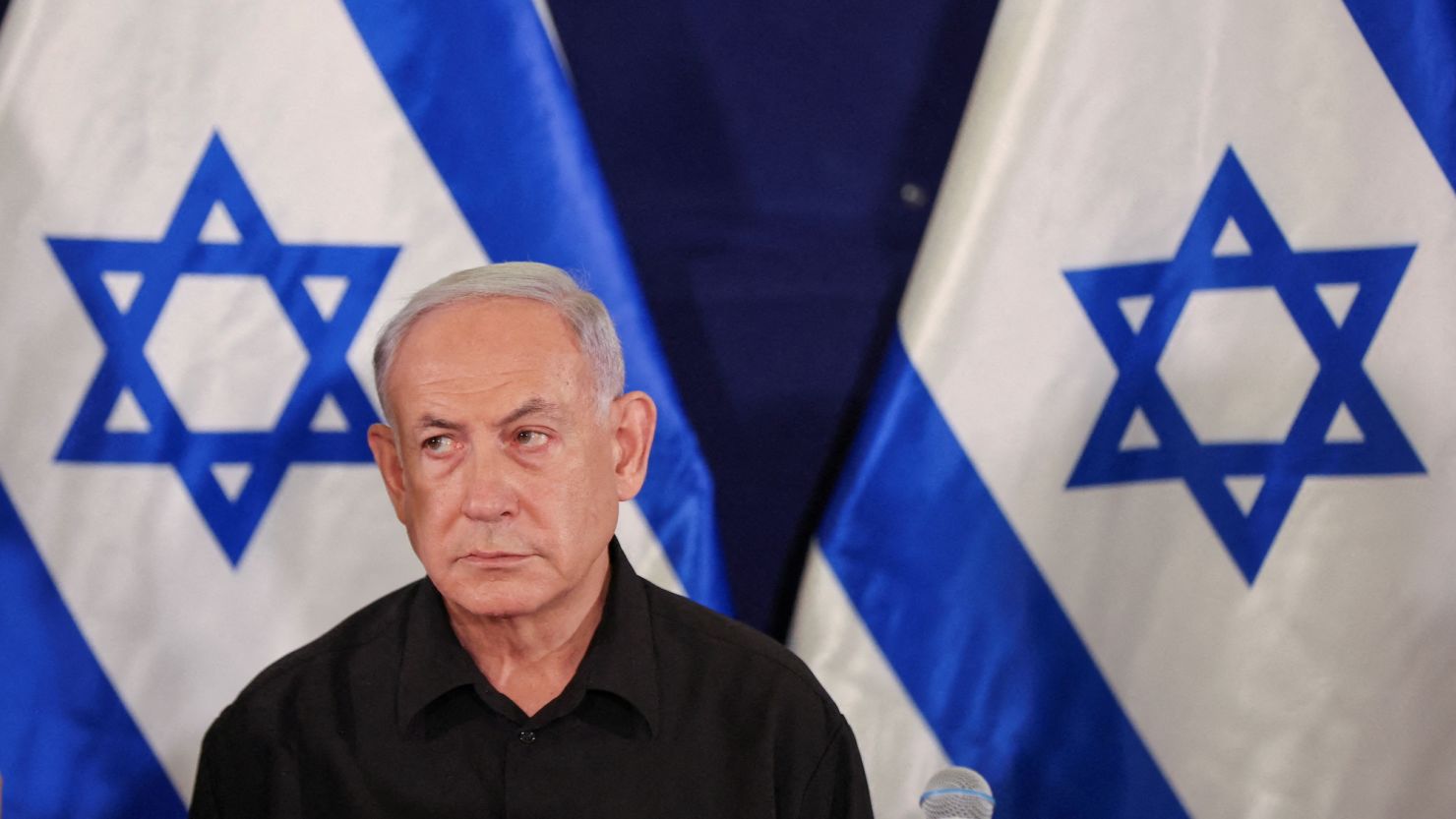From the United Nations to NGOs and even influencers, critics of the way Israel is waging war against Hamas in Gaza are not in short supply; even US President Joe Biden has decried its “indiscriminate bombing.” But if there’s one area where Israel is arguably beyond reproach, it’s in the consistency of its stated war aims:
• Destroy Hamas so it can’t fulfil its goal of repeating the October 7 massacre.
• Bring back the remaining hostages held by Hamas.
There are other aims, such as reestablishing deterrence to Israel’s foes, and reassuring Israelis the state can still protect them. But those were the main ones – until last week.
In recent days, a third objective has unashamedly wormed its way into the open: getting Prime Minister Benjamin Netanyahu reelected.
It began in earnest about a week ago, when US calls were growing for the Palestinian Authority (PA), which administers parts of the Israeli-occupied West Bank, to take control of post-war Gaza. Netanyahu’s response: Not on my watch.
In comments to lawmakers, the prime minister claimed the Oslo Accords – a series of pacts between Israel and the Palestinians which laid the groundwork for discussions on a possible future Palestinian state, and which he previously said he would honor — had caused as many deaths as Hamas’ October 7 massacre, “though over a longer period”.
Later that day, Netanyahu – whose reputation as “Mr. Security” lies in tatters, and whose popularity has plunged – was at it again.
“Gaza will be neither Hamastan nor Fatahstan,” he said, referring to Fatah, the largest Palestinian faction, which was instrumental in the signing of the Oslo Accords, and continues to control the PA, which administers parts of the Israeli-occupied West Bank.
His ambassador to the UK was even clearer: When Sky News asked Tzipi Hotovely if Israel supports a two-state solution, she replied: “The answer is absolutely no.”
Why the focus on a failed, 30-year old agreement? “All Jewish Israelis are unanimous about the need to dismantle Hamas,” Yohanan Plesner, President of the Israel Democracy Institute (IDI), tells CNN. “Bibi [Netanyahu] needs to find a new raison d’etre to remain relevant. So he’s going back to the Oslo process.
“He’s going back to the huge justified skepticism of any kind of solution that will hand over our security interests to the other side. And trying to position himself as … the guardian of those security interests. It’s a relatively shrewd political manoeuvre.”
Alas, says Plesner, it comes at the expense of the national interest. He believes that, in practice, there aren’t really any major differences in how the US, Europe or Israel sees the war ending (with the defeat of Hamas), or the interim stage that comes immediately after: witness the British and German foreign ministers’ call for a “sustainable ceasefire,” which, among other things, requires the pie-in-the-sky assumption that Hamas might lay down its arms. And so, says Plesner, Netanyahu is “trying to pronounce differences that are irrelevant at this point to improve his political lot.”
Or, to put it as “Bibi” author Anshel Pfeffer did on X, formerly known as Twitter: “What’s happening … is Netanyahu consciously squandering what little international support Israel has (mainly from the US) to continue the war against Hamas in a vain attempt to save his own political career by picking a fight with Biden.”
Netanyahu’s fortunes may be decided sooner rather than later.
On Tuesday, Plesner’s IDI published a survey that found almost 70% of Israelis want to see the country hold new elections as soon as the war with Hamas ends.
More worryingly for Netanyahu, the survey also showed 31% of his own Likud voters say they will vote for a different party next time (16% of those will vote for a different political bloc entirely).
Netanyahu, of course, has been written off before. He’s always proved the doubters wrong.
But after widely being blamed for the failures that allowed October 7 to happen on his watch, he now seems unable to fulfill one of his central war aims: bringing the hostages home. During the course of his government’s week-long truce with Hamas, 110 hostages were freed and 240 Palestinian prisoners released. But only one rescue attempt – that of female soldier Ori Megidish – has been successful. Repeated attempts to rescue others have failed, culminating in the IDF mistakenly killing three Israeli hostages.
Even before that debacle, IDI found only around one-third of Israelis believe it’s possible to retrieve the remaining Israeli hostages, who number over 100.
That tragedy may in turn hamper Netanyahu’s ability to fulfil his other war aim of destroying Hamas. On Saturday evening, thousands of protesters descended on the renamed “Hostages Square” in Tel Aviv. They demanded the prime minister and his government do more to bring their loved-ones home, and to make this the government’s number one priority – not the destruction of Hamas.
Ultimately, Netanyahu will probably do whatever gives him the best chance of staying in office. “It’s not power for power,” says Plesner.
“He thinks he has a hugely important role in Israeli and Jewish history. Legacy is extremely important. And he wouldn’t want his legacy to be the October 7 attack.” Like it or not, though, it almost certainly will be.




